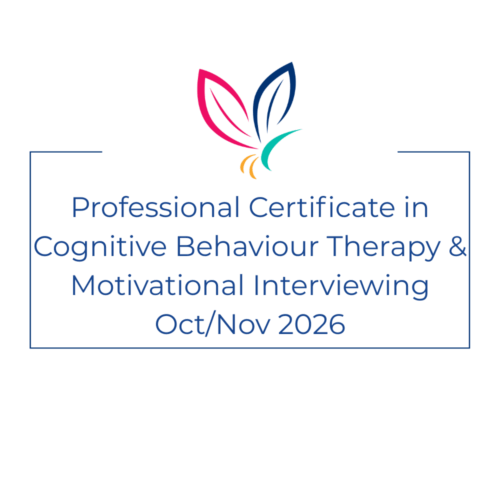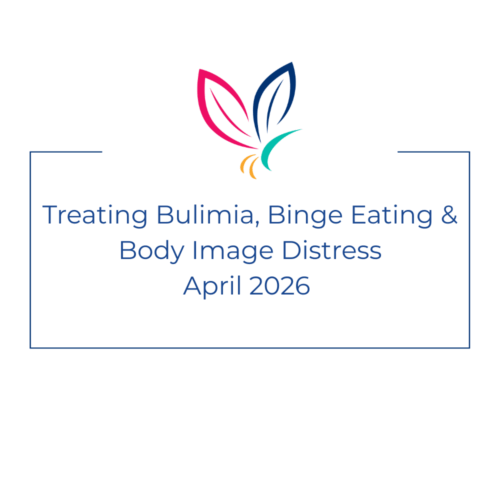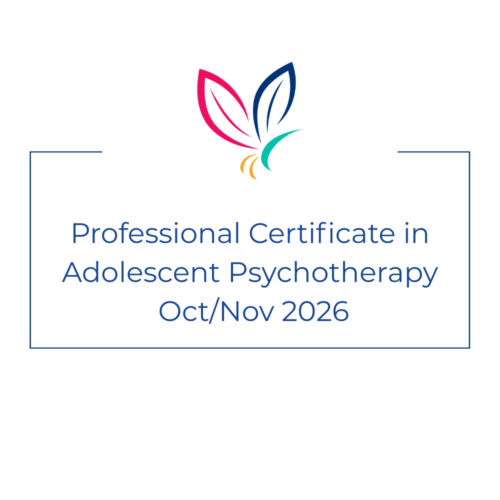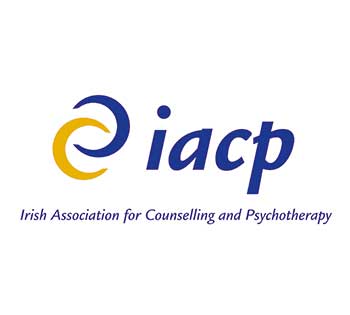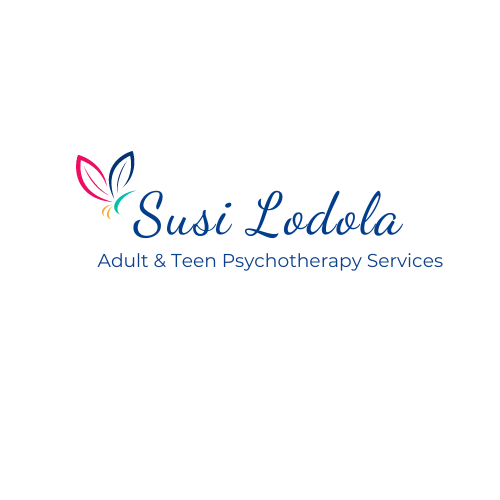Description
Description
Build the confidence and skills to work effectively with young people through the Professional Certificate in Adolescent Psychotherapy. Designed in alignment with the IACP’s recommendations for working with clients under 18, this course combines developmental theory, practical skills, and evidence-based interventions to help you support adolescents in a therapeutic setting.
You will learn to conduct adolescent-specific intakes, navigate complex legal and ethical considerations, and work collaboratively with parents and schools to achieve positive outcomes. The programme explores Cognitive Behavioural Therapy (CBT), Compassion Focused Therapy (CFT), Person-Centred Therapy, and creative approaches that make therapy engaging and effective for young clients.
The course is delivered by Susi Lodola (MIACP) and features expert guest lecturers:
- Dr. Malie Coyne — Chartered Clinical Psychologist and bestselling author, delivering specialist training on using CFT to help adolescents manage self-criticism, shame, and emotional regulation.
- Orlaigh Byrne — Psychotherapist, presenting on neurodiversity in therapy, including Autism, ADHD, and AuDHD, the Double Empathy Theory, masking/unmasking, and the SPACE framework to support neurodivergent adolescents.
- Clodagh Ní Ghallachóir MSc — Counsellor, psychotherapist, and organisational psychologist with a Post Graduate Diploma in Family Law from the Law Society of Ireland, guiding you through the legal and ethical aspects of working with adolescents, ensuring you protect both yourself and the young people you support.
Key topics include adolescent development, the adolescent brain, building strong therapeutic alliances, integrating creative and symbolic techniques, working in trauma-informed ways, and using assessments to track progress. You will also explore consent, confidentiality, mandatory reporting, and other critical safeguarding practices.
Learning Outcomes
- By the end of this course, you will have a robust toolkit and a clear, adaptable framework to confidently support clients under 18.
- Adolescent Development:Understanding the unique developmental phases of adolescence is crucial. This topic explores the psychological, cognitive, and emotional changes during adolescence and examines how these factors influence behaviour, mental health, and therapeutic approaches.
Clinical Skills for Working with Adolescents:
Participants will enhance their clinical skills, focusing on building rapport, managing confidentiality, and establishing strong therapeutic alliances. This section also addresses the complexities of working with multiple stakeholders, such as families and schools, in adolescent therapy.
Creative Approaches in Adolescent Therapy:
This section introduces creative methods, including the use of play, art, and symbolic strategies, to help adolescents express themselves. These approaches offer alternative ways for young clients to explore emotions and engage in therapy more effectively.
Compassion Focused Therapy Approach to Working with Teens:
Compassion Focused Therapy (CFT) plays a vital role in helping adolescents manage self-criticism, shame, and emotional regulation. This approach fosters self-compassion and emotional resilience, supporting teens as they navigate difficult emotions and anxieties. We are thrilled to have Dr. Malie Coyne, Chartered Clinical Psychologist and bestselling author, join us as a guest lecturer. Dr. Coyne will lead this section, providing expert insights on how CFT can be used to effectively address the emotional challenges adolescents face.
Cognitive Behavioural Therapy (CBT) Approaches:
An in-depth exploration of CBT, particularly Beck’s model, tailored for adolescents. Participants will learn to identify and challenge cognitive distortions, address maladaptive behaviours, and integrate CBT with person-centered techniques to create a supportive and adaptable therapeutic process.
Clinical Practice:
This part of the course focuses on applying theoretical knowledge in real-world settings through reflective practice and experiential learning. Participants will develop practical skills and engage in case-based learning to enhance their therapeutic effectiveness.
Using Assessments and Progress Tracking:
Participants will explore the most effective assessment tools for adolescent clients and learn how to track progress over time. This section emphasizes using data from assessments to inform treatment plans and ensure that therapeutic goals are being met.
Structuring Therapy with Adolescents:
This topic covers how to structure the entire course of therapy, from initial assessments to goal setting and treatment planning. It highlights the importance of creating a flexible, developmentally appropriate framework that can be adapted to the individual needs of adolescent clients.
Neurodiversity:
Guest lecturer Orlaigh Byrne will present on ‘Neurodiversity in Therapy’ where she will explore the evolving understanding of Neurodiversity. She will explore Autism, ADHD and AuDHD to examine how they may impact on the lived experience of a neurodivergent adolescent. Orlaigh will also examine research on why neurodivergent people are less likely to access therapy and what the research shows about barriers to therapy for neurodivergent individuals. Within the therapy room the importance of issues such as awareness of identity, communication and acceptance will be highlighted. Orlaigh will also discuss the Double Empathy Theory (Milton 2012), Masking/Unmasking and how the SPACE framework (Doherty, 2023) may be applied to therapeutic settings
Parental Considerations in Therapy:
Participants will learn strategies for effectively engaging parents and caregivers in therapy, balancing the adolescent’s need for confidentiality with family involvement. This section focuses on how to collaborate with parents to enhance therapeutic outcomes.
Ethical Considerations in Adolescent Psychotherapy:
This section addresses the ethical issues specific to working with adolescents, such as confidentiality, informed consent, and the legal considerations of working with minors. Participants will also examine professional standards and ethical decision-making in adolescent therapy.
Legal Considerations when working with minors:
- Defining What is a Parent and Guardian
The Guardianship of Infants Acts [1964-1997]
The Children and Family Relationships Act [2015]
The distinction between custody and access
- Contracting with People under 18
Sharing of information with parents and /or guardians
Navigating how information is shared
- Confidentiality and Limits to Confidentiality
The Mental Health Act [2018]
Note keeping
What happens if notes are subpoenaed for Family Court or Criminal Court
- Mandatory Reporting and Disclosure
The Children First Act [2015]
Mandated Persons
Protection for Persons Reporting Child Abuse Act [1998]
The McGrath Case [2022] and McGrath Appeal [2023] – implications for practice. Practical steps when making a report
- Consent
Role of parents and guardians in consent
Five contexts of consent and associated ages and legislation
Dates and fee
Dates: 2026
Saturdays
29th Aug 9.30 – 4.30
5th Sep 9.30 – 4.30
12th Sep 9.30 – 4.30
19th Sep 9.30 – 4.30
- Fee: € 650
- 3 instalments
- Deposit: €150 (due at booking)
- 2 further payments of €250 each
Approved for 30 CPD hours by IACP
Cancellation & Transfer Policy
I understand that circumstances can change, and I aim to be as fair and transparent as possible.
- Up to 14 days before the course start date: Paid fees will be refunded in full, less a €50 administration fee. Alternatively, if the course is running again, you may transfer your booking to a later date at no extra cost.
- Less than 14 days before the course start date: A cancellation fee of 50% of the course fee will apply. Alternatively, if the course is running again, you may transfer your booking to a later date, subject to availability.
- Less than 48 hours before the course start date / non-attendance: Unfortunately, no refund can be issued. Alternatively, if the course is running again, you may transfer your booking to a later date, subject to availability.
All cancellations or transfer requests must be made in writing by email.
If a course is cancelled by the organiser, participants will receive a full refund of fees paid or may choose to transfer to another date where available.
FAQ
Frequently Asked Questions – Adolescent Course
Does this course qualify me to work with adolescents?
As CORU regulations are still being developed, there is currently no specific regulatory body or authority that grants accreditation to work with adolescents in a therapeutic capacity. The ability to work with minors largely depends on your insurance cover and your personal competence to provide therapy to this age group.
This course is designed to equip you with the essential skills and knowledge necessary for effective adolescent therapy. It is aligned with the guidelines set by the IACP (Irish Association for Counselling and Psychotherapy), which requires therapists working with adolescents to have appropriate training, supervision, and insurance.
The course meets the IACP’s expectations for professional development in this area and supports you in building the competence and confidence needed to work with adolescent clients. Additionally, it is approved by IACP for CPD hours, helping you maintain the necessary professional standards.
How is the course delivered?
The training is delivered live online via Zoom, with interactive presentations, discussions, role-plays, case work, and practical exercises.
Are the sessions recorded?
No, the course will not be recorded. The sessions are highly interactive and often involve participants sharing experiences from their own work or from their private lives. To maintain confidentiality and create a safe and open space for discussion, we keep the training live only.
Can I record the sessions for my own use?
No, participants are not permitted to record the sessions. This is to respect the confidentiality of all participants and to encourage everyone to contribute freely.
What happens if I miss a session?
Detailed lecture notes , readings and other materials are provided. If anything feels unclear, you are welcome to check in with me directly.
Do I need prior experience working with adolescents?
No. The course is suitable for both beginners (including student therapists) and experienced practitioners who wish to refine their skills.
Do I need to prepare anything before the course starts?
No preparation is required. Some participants find it helpful to reflect on examples from their own work with adolescents, but this is optional.
What is the time commitment?
The course runs over four full training days, with additional time between sessions to review materials and practise skills.
What materials are provided?
You will receive comprehensive lecture notes, handouts, worksheets, and tools that you can use straight away in practice.
Will I receive CPD hours and a certificate?
Yes. Successful completion awards the Professional Certificate in Adolescent Psychotherapy, approved for 30 CPD hours.
Is there an assessment?
There is no formal written assessment. Certification is based on full participation in the live training.
Do I have to do a placement? No, there is no placement required as part of this course.
What if I have questions during the course?
You’re encouraged to ask questions at any point during the live sessions, and you can also follow up with Susi afterwards if you need clarification on anything.
Who is this course for?
This course is ideal for:
- Qualified psychotherapists and counsellors seeking to expand into adolescent work, gaining practical tools and specialist knowledge.
- Student therapists currently in training who want to build confidence and competence in adolescent-specific approaches.
- Mental health practitioners looking to strengthen their ability to support young people effectively.
- Professionals in related fields such as school counselling, guidance counselling, psychology, and social work who work with adolescents.
Teaching Team
About Your Course Facilitators
Our CPD programmes are delivered by a team of experienced professionals who bring together expertise in psychotherapy, psychology, education, trauma, neurodiversity, and legal and ethical practice. Each facilitator combines academic knowledge with real-world experience, ensuring the training is practical, evidence-based, and directly applicable to your work. Together, they provide a well-rounded learning experience that supports your professional growth and confidence in practice.
Susi Lodola
Susi Lodola is a psychotherapist, third-level lecturer, and IACP-accredited clinical supervisor with extensive experience in psychotherapy, working with adults and adolescents. She holds an MSc in Cognitive Behaviour Therapy and Motivational Interviewing, a Higher Diploma in Psychology, a BA (Hons) in Linguistics from UCD, and a BA (First Class Honours) in Integrative Counselling & Psychotherapy. She has also completed professional certificates in CBT, Child & Adolescent Counselling, and Mindfulness, along with a Diploma in Clinical Supervision.
Susi lectures at third level, where she has developed modules for psychotherapy training programmes, and is known for her engaging and practical teaching style. She has delivered workshops for the National Educational Psychological Service (NEPS), provided workplace wellbeing programmes, and volunteered with AWARE supporting people with depression and anxiety. Susi is also a regular contributor to the Irish media on mental health topics.
Dr. Malie Coyne
Dr Malie Coyne is a Chartered Clinical Psychologist, bestselling author, and lecturer at the University of Galway. Her award-winning book Love In, Love Out: A Compassionate Approach to Parenting Your Anxious Child has become a key resource for parents and professionals alike. She is the Psychological Lead and Co-Author of the A Lust for Life Schools Programme, reaching a third of Irish primary schools, and is now expanding into secondary schools.
Malie has a special interest in neurodiversity, carrying out autism assessments with Solas Psychology. Through her clinical work, advocacy, and frequent media contributions, she is recognised as a leading voice on compassionate mental health support for children, adolescents, and families.
Orlaigh Byrne
Orlaigh Byrne is a psychotherapist with extensive experience in education, holding an MSc in Pluralistic Counselling and Psychotherapy, a BA in Humanities, a Higher Diploma in Education, and postgraduate diplomas in Special Educational Needs (SEN) and SEN (Autism).
She worked in post-primary education for nearly two decades as SENCO and Co-ordinator of Autism Classes, providing training for teachers and SNAs in supporting neurodivergent students. Orlaigh now combines her educational expertise with private practice, specialising in supporting neurodivergent clients and their families.
Clodagh Ní Ghallachóir
Clodagh Ní Ghallachóir is a counsellor, sensorimotor psychotherapist, and organisational psychologist with a strong focus on trauma, ethics, and family law. She trained as a nurse in St James’s Hospital during the AIDS epidemic and has since built extensive expertise in supporting individuals and families through complex challenges.
She holds a Post-Graduate Certificate in the Psychotherapy of Rape and Sexual Violence, a Post Graduate Diploma in Family Law from the Law Society of Ireland, and is completing a Diploma in Law. Alongside her therapeutic work, she teaches in higher education and has a long history of advocacy in areas such as HIV/AIDS, sexual violence, domestic violence, and access to justice. Within this programme, she focuses on the legal and ethical aspects of working with adolescents, helping practitioners protect both themselves and their clients.
Reviews
This is what past participants have to say:
I have attended Susi Lodola’s four day Professional Certificate in Integrative Psychotherapy for Adolescents and found it a very insightful and enjoyable experience. I found the four days extremely useful in enhancing my knowledge as a therapist for navigating ethical dilemmas when counselling adolescents, navigating parental involvement and therapeutic techniques I can use in my work going forward with adolescents. As an educator, I enjoyed Susi’s style with regard to delivering the content and she made it very engaging throughout. Susi has a wealth of expertise and I recommend this programme for any therapist looking to increase their competencies for adolescent therapy. I am looking forward to implementing what I learned into my work going forward and I have greater clarity regarding the complexities that are involved when counselling teens.
Jimmy Williams
Cognitive Behavioural Therapist; Counselling; Psychotherapy; Performance Psychology Specialist
Suzi, your course really helped me getting more confidence to work with teens. As you said we have the skills the difference is how to apply them with young people. Materials were great and the book you recommended is also very good and easy to read. I will always be nervous with the first teen but I am always anxious when I meet a new client. I will definitely recommend your course to colleagues.
Ana Moore, Psychotherapist
It has been an incredibly enriching and empowering experience from start to finish. The structure, content, and delivery exceeded my expectations, providing not only valuable knowledge but also practical tools that I feel I can confidently integrate into my therapeutic practice. The lecturer’s expertise and engaging approach made complex concepts accessible and applicable, particularly in understanding adolescent development through a therapeutic lens. The inclusion of key psychological frameworks, such as Dr. Dan Siegel’s “Flip the Lid” analogy, Maslow’s Hierarchy of Needs, and the three emotional circles (threat, drive, and soothing), offered both depth and clarity. These tools, alongside discussions on contracting, confidentiality, consent, and outcome assessments, have significantly enhanced my confidence and ability to work effectively with young people. What stood out most was the emphasis on parental engagement and the recognition that parents themselves may carry trauma. This holistic perspective has refined my approach, ensuring that I consider the broader system surrounding an adolescent. The course materials were well-structured, informative, and highly applicable, making the learning process both engaging and practical. The interactive nature of the training encouraged self-reflection and deepened my understanding of how to tailor interventions to meet adolescents’ unique needs. Overall, this course has been invaluable in strengthening my clinical practice, deepening my insight, and reinforcing best practices when working with young people. I feel much more prepared, confident, and attuned to the developmental stage of adolescents, which will undoubtedly enhance my work moving forward. I would highly recommend this training to any professional working with adolescents, as it provides a solid foundation in evidence-based approaches while also fostering adaptability and reflective practice. Thank you so much for providing such a high-quality learning experience.
Emaior Hartnett, Psychotherapist
I learned so much from this course and am very pleased I attended. I feel more confident working with adolescents. The amount of materials shared alone is of such value, and I feel like I am really setting myself up for success after this course.
Deimante Malisauskaite, Psychotherapist
After completing the course, I now feel that I have all that I need to start working with adolescents. Susi provided excellent resources, skills and interventions to support us in beginning work with young people. She shared generously from her own professional experience which was so helpful. The creative work is something which I have developed more confidence in since completing the course. I am excited to be able to bring in what I have learned into the work.
Catherine Meagher, Psychotherapist
Fantastic learning from both Susi, and the individuals in the group. Great discussions and interactions. Plenty of materials and a nice blend of presentation and practice
Samantha O’Sullivan, Psychotherapist
The course was wonderful. It gave a good balance between theory and practice and was research informed. Lots of supporting material was provided and the approach to teaching was varied throughout each day. Susie has a lovely way of teaching and facilitating that made it even more enjoyable. I would highly recommend the course.
Leo Muckley, Psychotherapist
This course was extremely interesting, practical and enjoyable. It packed an enormous amount of learning into a short time and left me feeling confident and well equipped to work with young people. I particularly liked the supportive nature and guidance provided by Susi throughout the course.
Orlaigh Byrne, Psychotherapist
Well worth doing. Lots of excellent materials. Susi has a lovely authentic approach, she provides a huge amount of useful material and was very supportive.
Bev Webster, Owner Think Better: Psychotherapist & Coach; Mental Health Facilitator & Consultant
I just wanted to say a huge thank you for such a brilliant course. I found the Adolescent Integrative Certificate to be incredibly well thought out and packed with practical tools that I’ve already started using in my work. It’s given me such a boost in confidence when it comes to working with adolescents, and I feel much more grounded in my approach now. The resources provided were absolutely invaluable , so comprehensive and useful, not just for now but something I know I’ll be returning to again and again. Susi’s teaching style was so engaging and relatable. She brought so much clarity, warmth, and authenticity to the material, and made what could be complex content feel really accessible and applicable. Thanks again – this course has genuinely made a big difference to both my learning and my practice.
Jen Conefrey, Psychotherapist
The course was great. The delivery was nicely paced, very relaxed and easy to follow. The materials provided were very good and gave a good all round view with lots of practical tips and tools to take away. The lecturer was very generous with her time and materials. I would definitely recommend this to others.
Paula Lawlor, Psychologist and Psychotherapist


